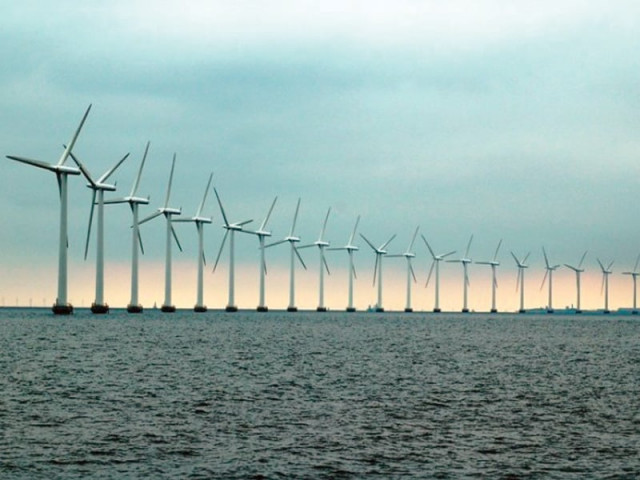Accord signed: Fauji Foundation invests $251m in wind power
Major financing comes from ADB, IDB and local banks.

In this connection, the two companies and the government signed an implementation agreement here on Tuesday. The accord was inked by Brigadier (Retired) Dr Gulfam Alam, Project Director of the two projects and Arif Alauddin, Chief Executive Officer of Alternative Energy Development Board (AEDB), on behalf of the government.
Speaking on the occasion, Managing Director of the two companies, Lieutenant General (retd) Muhammad Mustafa Khan said the Asian Development Bank (ADB), Islamic Development Bank (IDB) and a syndicate of local banks were providing most of the finance for the wind farms.
Debt financing, which is 75% of the project cost, is Shariah-complaint and is the first of its kind in Pakistan. The remaining 25% of the cost is being financed via equity investment, arranged by the Fauji Foundation group, CapAsia Singapore and Tapal Group Karachi.
ADB and IDB will provide $124 million and the consortium of local banks will arrange $63 million.

Khan said he was targeting to enter into an energy purchase agreement for the two projects this month and achieve financial close immediately after that. Both projects are expected to start commercial production in the second quarter of 2014.
Fauji Fertiliser Company Wind Energy Limited (FFCEL) has already established a 50MW wind power plant, which would start operation this month.
AEDB CEO Arif Alauddin commented that the two wind projects of Fauji Foundation subsidiaries were trendsetters in many ways and opening doors to investment in the Gharo Keti Bandar wind corridor.
He said 45 wind power projects of around 3,200MW were under process, adding the Sindh government had leased around 26,000 acres of land to AEDB for 18 projects with a cumulative capacity of 906 megawatts, which were at different stages of development.
Of these, projects having combined capacity of 106MW are ready for commencement of operation and projects producing a further 100MW will achieve financial close shortly.
“Wind projects being installed by Fauji Foundation will cost less than Rs10 per unit,” he said, adding wind and solar projects would have their impact on the energy mix and reduce circular debt.
Published in The Express Tribune, December 19th, 2012.



















COMMENTS
Comments are moderated and generally will be posted if they are on-topic and not abusive.
For more information, please see our Comments FAQ